What if citizenship wasn’t something we’re born with, but something we choose when we grow up? In the Terra Ignota future, giant nations called “Hives” are equally distributed all around the world, so every house on a block, and even every person in a house, gets to choose which laws to live by, and which government represents that individual’s views the most. It’s an extension into the future of the many diasporas which already characterize our present, since increasingly easy transportation and communication mean that families, school friends, social groups, ethnic groups, language groups, and political parties are already more often spread over large areas than residing all together. In this future each of those groups can be part of one self-governing nation, with laws that fit their values, even while all living spread over the same space.
Readers of Too Like the Lightning have enjoyed playing the “Which Hive would you join?” game, but this system is very different from a Sorting Hat, or a personality quiz, for a simple reason: people aren’t assigned to Hives. In this world you choose, freely and for yourself when you come of age, which of the many worldwide nations best fits your ideals. And, even better, you can switch nations as easily as signing up for a different school club, so if a change in policy or rulers makes you feel your government no longer reflects your values, you can choose again. But what are the options?
1. Humanists (Humanistas)
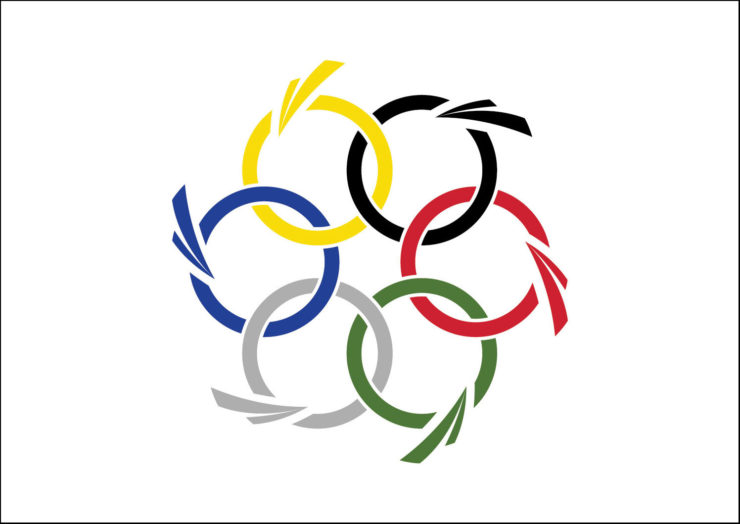
Capital: Buenos Aires
Hive Language: Spanish
Form of Government: Flexible Constitution Democracy
The Humanists focus on human excellence, especially competition and celebrity. Members tend to be athletes, performers, artists, orators, chess whizzes, and also enthusiastic fans, people who really enjoy sports, bonding over competition, going to concerts, and socializing around outstanding human feats. Humanists take pride in all Hive members working to be their best in some way, and celebrating a billion different kinds of excellence. Their laws tend to be permissive, valuing independence and self-determination. Their “flexible constitution democracy” means the government changes form depending on how much unanimity there is in an election—when one candidate wins by a landslide there is a very powerful executive presidency balanced by a senate; when it’s close there are co-Consuls or triumvirs; when there are many frontrunners there is a parliament. That way outstanding leaders wield great power, but checks are put on power in times of doubt. The Humanist flag shows the superfast flying cars that make this new interconnected global order possible (stylized as flying Vs), circling the Olympic rings, which in this future have a sixth ring, since the familiar five rings represent the five continents that have hosted the Olympics, and in this future Antarctica has hosted the Winter Games, thanks to technology pioneered by the Moon base and the Mars terraforming program.
2. The Cousins
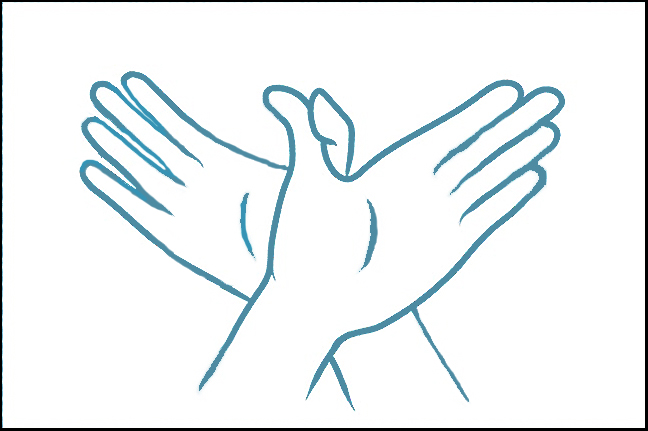
Capital: Casablanca
Hive Language: English
Form of Government: Board of Trustees and Suggestion Box
Cousins are the constructive nurturers of this world, valuing cooperation and kindness. They run schools and hospitals, caring for orphans, making sure prisons are humane, workplaces safe, and playgrounds delightful. The Cousins evolved out of a social club for people who had to travel alone, who would meet up with a volunteer “Cousin” who would show them around a new place, and offer hospitality, so in the beginning they were just run by a volunteer board and a suggestion box—and two hundred years later they are still run that way, by hardworking volunteers who dutifully check and act on every suggestion box submission from their nearly two billion members. For their own members their laws are the most restrictive of all Hives in terms of behavior—banning prostitution and most recreational drugs, mandating many aspects of education and medicine—but their courts are the gentlest in terms of punishment, always thinking in terms of rehabilitation, never retribution. The Cousins are the most beloved Hive in the eyes of others, and all Hives depend on them for social services, and to be a kind and neutral intermediary in inter-Hive strife. Their flag shows two hands joined together to form a dove, and in flag color meanings white represents peace, and cyan the freedom of the seas and skies—the same colors used by the United Nations.
3. Masonic Empire (Imperium Masonicum)
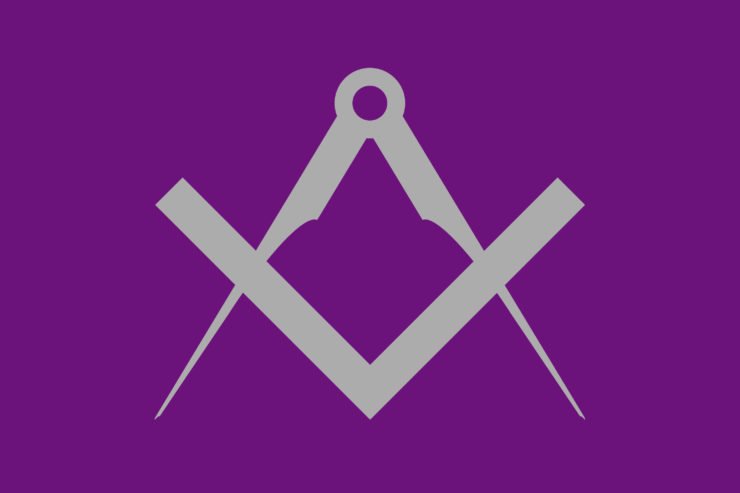
Capital: Alexandria
Hive Language: Latin
Form of Government: Absolute Monarchy
People who value strength, authority, and power join the Masons. Legends claim that the Masons are descended from Masonic lodges, and before that from an ancient secret empire that has been pulling history’s strings from the shadows since the birth of civilization. While many people think that is just propaganda, the claim of ancient power gives the Empire an air of awe and authority. The Masonic Emperor, called MASON, exercises absolute power, but since it’s as easy to leave a Hive as it is to join it, the Emperor is kept in check by the fact that any tyranny would instantly cause members to leave and join other Hives. Forced to rule well in order to attract members, the Emperors have traditionally been severe but fair. Masons learn and speak Latin—part of the Hive’s mystique of antiquity—and MASON is generally recognized as the most powerful person in the world, a severe and stern patriarch, the world’s Father if the Chair of the Cousins are the world’s kind and nurturing Mother. Masonic law is strict, and severe, but many people find that an attractive form of strength. The Masonic flag is the old square and compass of the Masonic order, in royal purple on a background of iron gray. Traditionally purple and gray are not used in flags, and flag experts say this is because gray is hard to see at a distance and purple dyes were difficult and unstable at pre-modern tech levels, but Masons claim it is because all nations in history have respected the colors of the Secret Empire and not dared to use them.
4. Gordian
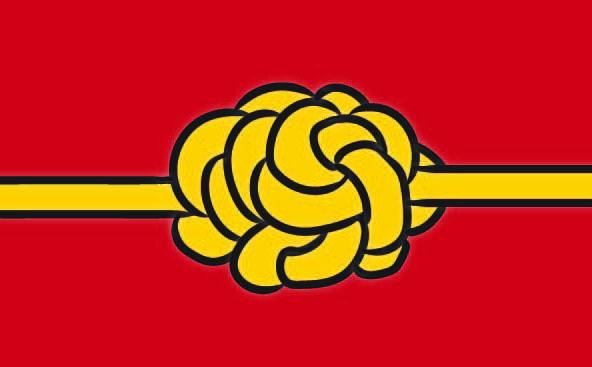
Capital: Ingoldstadt
Hive Language: German
Form of Government: Brain Bash
Gordian is administered by a think tank called its “Brain bash’” selected by the Adolf Riktor Brill Institute of Psychotaxonomic Science. Founded by a psychologist who made great leaps in cognitive analysis, Brill’s Institute probes the mysteries of the human brain, hoping to find ways to maximize, not only productivity and intelligence, but originality and dynamism. Brillists use an elaborate rating system to measure people’s psychological development on many different scales, assigning each individual a string of numbers (9-3-3-11-10-4-3-10 or 7-5-13-9-3-9-3-11) which are incomprehensible to outsiders but let Brillists predict enormous amounts about people’s behavior, unique skills, and potentials. Gordian used to be the largest Hive, but when one of its Chairman became excited by Brill’s psychological research decided to hand governance of the Hive over to Brill’s institute, many people left, so it is now the second-smallest Hive, containing only Brillists, excited by the idea of unlocking the brain’s hidden depths. The Gordian flag features a brain-like knot in gold, a color which, in flag language, represents wealth and potential, shown against a field of blood, the biological sea which surrounds the brain, and outlined in black, the darkness of what is not yet known.
5. The European Union (Union Européenne)
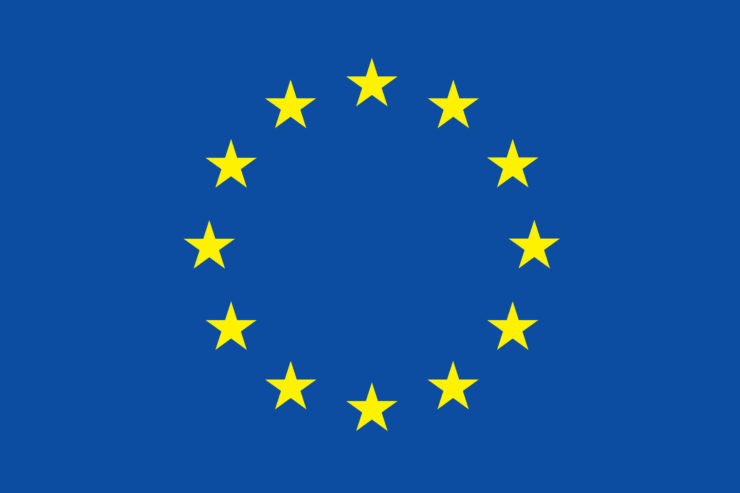
Capital: Brussels
Hive Language: French
Form of Government: National Parliamentary Democracy
From its foundation, the European Union was designed to evolve over time, and in this future that flexibility has helped it survive even the dissolution of geographic nations. The European Union is the favorite Hive of people who care deeply about their national or ethnic heritages and identities, and want those identities (I am French, I am Ukranian, I am Filippino/a) to have a voice in their government. This future EU is still run by a parliament of representatives from all its member nations, which has expanded to include a huge range of groups and identities, from Canada to Madagascar. Members tend to take great pride in their languages, cultures, and histories, aligning strongly with their heritages no matter where in the world they live. Since the European Union predates all the other Hives, the other Hives used it as the model for how to regulate large, mixing populations over huge distances, and members take pride in the EU as a forefather and mentor for all Hives. This EU still uses the original EU flag, with a ring of twelve gold stars on a deep, oceanic blue—in flag terms, gold usually represents prosperity, and deep blue Earth’s vast, shared seas.
6. Mitsubishi (三菱; Chinese Sānlíng; Korean Sam Neung).
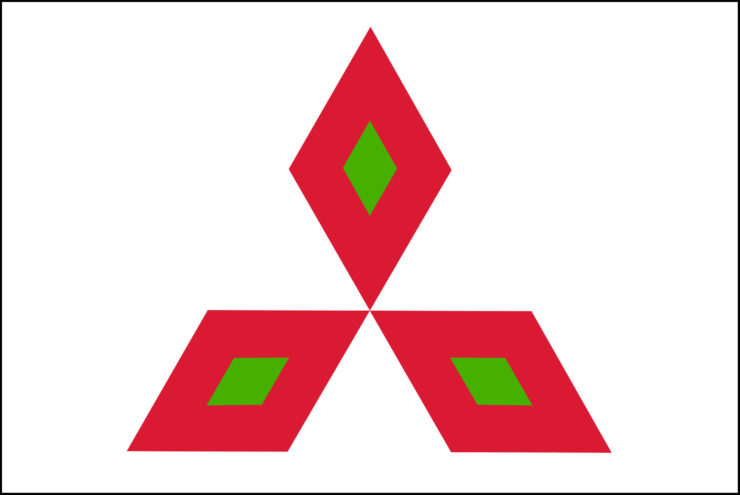
Capital: Tōgenkyō (Indonesia)
Hive Language: None (English)
Form of Government: Shareholder Democracy (Corporate Timocracy)
The Mitsubishi value land and nature, both in the sense of hiking, strolling through gardens, and caring for the environment, and in the sense of considering land the most valuable economic asset, the best route to power. Most, though certainly not all, Mitsubishi are of East Asian ancestry, since the focus on land and celebrating the Earth resonates with many aspects of Chinese, Japanese, Korean, Indian, and other East Asian and Southeast Asian cultures. The Hive developed out of the current multinational Mitsubishi corporate group, and all Mitsubishi members are considered shareholders, holding one share for being a member, and additional shares for owning property—gainging more votes for more property encourages members to acquire land, and thus bring more wealth to the Mitsubishi as a whole. The Mitsubishi own the majority of land on Earth, including valuable urban properties which they develop, and vast swathes of wilderness which they protect and study. The Mitsubishi and European Union are something of a cultural binary, rising from different regions of the Earth, but they actually have a great deal in common, since they are the two Hives concerned with ethnic groups, historic and regional politics, and whose members take pride in speaking their many ancestral languages. The Mitsubishi flag is based on the old Mitsubishi group’s logo representing “three red water caltrops” which is what the characters 三菱 mean, but with the addition of smaller leaf-green central diamonds commemorating the future Mitsubishi’s historic merger with the environmentalist Greenpeace Hive.
7. Utopia
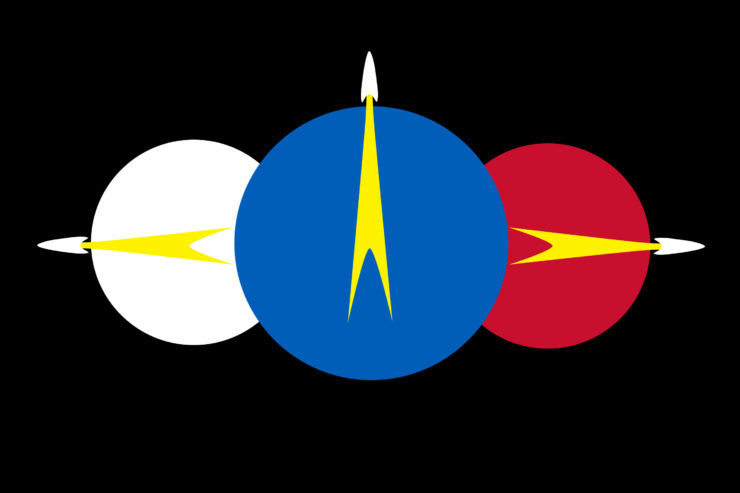
Capital: Luna City
Hive Language: none (English/U-speak)
Form of Government: Constellation
The smallest Hive is dedicated the future. Many Utopians work on space exploration, running the Mars terraforming project, and having their capital on the Moon. Others focus on extending and protecting human life, doing medical research, or improving safety. Every time a Utopian dies, they work to find the cause, and keep working until they solve it—whether it means an hour repairing a broken safety rail or generations researching a disease—and so, as the narrator puts it, they “slowly, blade-by-blade, disarm Death.” Other Utopians are inventors, experimental researchers, or social scientists, while still others are artists, authors, or teachers, working to inspire people to aim for a better future, speculating about other ways the world might be, or making this world more beautiful. In a world of plenty, where most people only work 20 hours a week, all Utopians are required to dedicate themselves to work, giving most of their hours and most of their days to the future. This uniquely intense demand on members keeps the Hive very small, since some people love to put in 60+ hour weeks in the name of the future, but not many. Utopia has no official Hive language, but most Utopians speak a dense English slang called U-speak, packed with unconventional re-appropriations of fantastical and scientific vocabulary. Utopians organize themselves in overlapping webs of networks and teams called Constellations—so named because their shapes are deceptive when viewed from an outside, and what may seem to be a collection of ten dots might secretly include a cluster of a million stars that only seems to move as one. The Utopian flag shows the circles of the Earth (blue), Moon (white) and Mars (red) against the black of space, with small rockets launching outward toward the stars.
8. Hiveless

Capital: Romanova
Hive Language: N/A
Form of Government: Senatorial Alliance
There is another option for those who don’t identify with any of the seven Hives. The balance among the seven Hives is kept by an organization called the Universal Free Alliance, often referred to be the name of its capital city, Romanova. Romanova handles Hive registration, Hive switching, complex legal cases involving multiple Hives, tracks the world economy, and handles worldwide issues like pollution, and the rights of minors. Romanova hosts a Senate with representatives from all Hives, which advises the Hives and the neutral Romanovan police.
Romanova also cares for the Hiveless, people who choose not to join any Hive but are protected by Romanova directly through a set of carefully-crafted neutral laws. Romanova offers three sets of laws which people can choose among: a standard moderate Gray Law, a more restrictive White Law for those who (like the Cousins) feel that more restrictive social legislation is better for society, and a minimal Black Law for those who don’t want to be bound by any law. For Blacklaws even murder is legal (though only of other Blacklaws), and they live in self-selected anarchistic territories, governed only the “Seven Universal Laws” which Romanova requires of all members of the Hives and Hiveless, and which ban only very basic things such as torturing children, or unleashing mass destruction endangering tens of thousands of lives.
While some Hiveless are Hiveless simply because no Hive feels like them, others take great pride in being citizens of the world, answering to no authority other than the Tribunes they elect to veto movements in the Senate that endanger Hiveless liberty. The Alliance flag shows the blue of the Earth, with a belt of white, gray and black representing Hiveless law, surrounded by fields of gold—representing prosperity—and blue—representing the skies and liberty—balanced by white—peace. A circle of Vs represent the flying cars that enabled the new order, circling counterclockwise to represent a new direction for humanity. The selection of blue and gold, and the circle, invoke the European Union flag, the prototype of the Hive system. Hiveless use their own variants on Romanova’s flag, focused on black, white, or gray.

The secrets of the brain, the push for human excellence, constructive kindness, ancient power, ethnic heritage, the value of the Earth, hard work for the future, or the independence of life without a state—which would you choose, if citizenship were choice, not chance?
Which Hive would you join? (For fun, I’ve created a poll so you can let us know & see others’ replies.)
For a limited time, you can get a free ebook of Too Like the Lightning! Offer ends March 23, 2018 at 11:59pm EST.
The first three books of the Terra Ignota series—Too Like the Lightning, Seven Surrenders, and The Will to Battle—are available from Tor Books. Book four, Perhaps the Stars, publishes in 2019.
This article was originally published in March 2017.
Ada Palmer is a historian, working primarily on the Renaissance, Italy, and the history of philosophy, science, books and printing, heresy, and freethought, as well as manga, anime and Japanese pop culture. She writes the blog ExUrbe.com, and composes SF & Mythology-themed music for the a cappella group Sassafrass. Her novels Too Like the Lightning and Seven Surrenders are available now from Tor Books. Book 3 in the Terra Ignota quadrilogy, The Will to Battle, publishes in December 2017.











Hummmm decisions, decisions. Utopian or Humanists?
According to the map, I seem to be the only Odessan (West Texas) that did the quiz and/or knows who Ada Palmer is. And of course, the only option is Gordian.
I wonder who’s going to cut the Gordian Knot.
I distrust any place that calls itself Utopia. They’re up to something.
Amen, ad.
Wait a second, are we supposed to trust the Evil Overlord who promises to reign unparalleled death and destruction down upon us?
I think we can believe he means what he says.
As described here, Hives strongly resemble the “phyles” in Neal Stephenson’s (dare I say) dazzling novel, The Diamond Age, which won a Hugo in 1996. Phyles may be based on a shared culture or ethnic origin or religion, and have largely replaced national governments. As I recall, the “Neo-Victorian“ phyle plays a major role in the story.
Frankly I don’t much like any of these Hives.
This is a really interesting conception for an imagined world. Are there economical differences within each hive?
I doesn’t seem plausible that there would only be seven.
I imagine it would be very likely to be only seven! Some would argue that there are only about as many major players in global interchange right now anyway at the highest stratum. Everyone else redresses (or wishes redress was only through) “their” party:
The United States (which I am reporting from) doesn’t like the laws and rules of the United Nations, the EU, or even the types of sanctions it imposes on Asiatic countries. However, a smaller country like Brussels or Laos needs the larger entity of an “alliance” or “nation” to help enforce its own law and represent its desires on a larger scale.
The question is misleading because I think your “Hive” is very different from your nationality or personality (it was mentioned, this is NOT a Sorting Hat). I bet there’s still assholes or saints in all 7. Your Hive more represents the type of governance and punishment you’d prefer, and sort of who would “extradite” you if you did break a law in a given area.
Your Hive, much like your current nationality, doesn’t preclude you from working with others in positive or negative ways. I suppose a recovering heroin addict might work with the Masonics while belonging to the cousins, in order to get leniency for any backsliding while also gaining friendships and allies in a powerful, secret world.
A lifelong Blacklaw Hiveless could also be an incredible asset to said “secret” nation.
I find it more interesting that the Masonics would ever be so transparent and allow “members” to join and leave at will haha
I’m a Utopian, through and through, with a bit of Brillist flavor.
I’m dearly looking forward to see what the godlike technology and powers Godian and Utopia will set loose to vanquish invincible leviathans in the next book…
This would seem to throw out any pretext of equality under law. I may be restrained from doing something to my neighbor, that he would be free to do to me and vice versa, while my opposite neighbor has a completely different set of regulations. The legal code exists to settle disputes between people who are likely to interact, not between like minded people. In fact, you are most likely to get disputes between people who do not fundamentally agree on how life should be run. Not to mention the logistical issues of how each set of laws applies.
the familiar five rings represent the five continents that have hosted the Olympics
Well, they do and they don’t. The five rings definitely represent the five continents that take part – though not the five continents that have hosted, because the insignia was launched in 1914, by which time only North America and Europe had hosted the games. And, indeed, there still hasn’t been an African Olympic Games, and there won’t be before 2032 at the earliest.
But it’s not true that each ring represents a particular continent: that the blue ring is Europe, the black ring Africa etc. Not only is this a bit icky (the yellow ring represents Asia because Asians are yellow? Not entirely happy about that), but it’s also not the way the rings were intended; the six colours of the Olympic rings (counting the white background) were picked because at least one of them appears on the flag of every country in the world. So if you’re Spanish, the red and yellow rings are for you. If you’re Jamaican, you’ve got green, yellow and black. If you’re French, red, white and blue. And so on.
This would seem to throw out any pretext of equality under law. I may be restrained from doing something to my neighbor, that he would be free to do to me and vice versa, while my opposite neighbor has a completely different set of regulations.
In fact, what it does is turn pretty much every human interaction into a matter of international diplomacy. So there would have to be an overarching code of international law to lay down what citizens of different nations can and can’t do to each other, just as there is now but in far more detail. Neal Stephenson, who wrote about decentralised nations decades ago in Snow Crash and The Diamond Age, called this Protocol; and it was enforced by a huge and heavily-armed international organisation; but one which most people could avoid dealing with because his nations weren’t completely decentralised, they had lumps of contiguous territory over which they held sovereignty, so most of your interactions actually were with people from the same nation.
But if you go for full decentralisation, where nationalities are no more aggregated than handedness and everyone picks their own, essentially no one is a citizen of anywhere except Protocol, because Protocol is the only code of law that matters most of the time.
@14/Crusader75: Back in the day, when I read a lot of libertarian literature, I learned about these cities around the Mediterranean, which actually had multiple, interpenetrating governments at various points in their history. If there was a dispute between citizens of different governments, and it wasn’t clear who had jurisdiction, the case would go to a special court the governments set up to handle such issues.
17: in Hong Kong, until fairly recently, there were two systems of civil and criminal law in operation, and ethnic-Chinese citizens of Hong Kong could choose which one they wanted to be heard under; either British law, or Chinese law and custom. Magistrates were supposed to be competent in both. The parties in a case had to agree which system they wanted; if they couldn’t, the magistrate chose for them.
Austin Coates, “Myself a Mandarin”, a very entertaining account of being a magistrate in the 1950s; unfamiliar with both British and Chinese law, he basically decided to encourage everyone to pick Chinese law, as there was only one textbook in the law library on Chinese law, and he had taken the precaution of reading it carefully and then putting it back on the wrong shelf so no one else could find it. Also he found that Chinese law and custom gave him rather more flexibility in coming up with solutions that were generally accepted as fair and just, if not precisely legal.
@16,
Of course, international law doesn’t have a completely accepted enforcement mechanism. Who’s going to enforce a judgment against the US in 2018 or the UK in 1873?
19: The World Trade Organisation. Or indeed local courts, which can order seizure of US assets.
@18, traditional Chinese law and custom gave a lot of discretion to the magistrate, which could be good or bad depending. The system lasted for a millenia or two so it seems to have worked reasonably well overall.
I don’t know how well this system would perform in practice but it might encourage people to avoid getting involved in the law as much as possible. A system of unofficial mediators perhaps.
The idea of a world where you choose which government you are ruled by goes back to Delany’s Trouble on Triton (a/k/a Triton, 1976). In that world they had elections, and the party you vote for is the party that governs you, whose laws you abide by, etc.
these cities around the Mediterranean, which actually had multiple, interpenetrating governments at various points in their history.
The example that comes to mind is the Ottoman millet system in which everyone was a member of a religious community, and they were more or less self-governing. So if you were a Jew in Smyrna, you were a member of the Jewish millet, and you had your own laws and judges and so on, and there would be a designated community leader in overall charge of all the Jews of Smyrna, and the Ottoman governor of Smyrna more or less left you alone to run your own community as long as you paid your taxes. If you had a dispute with a member of the Orthodox Christian millet then obviously mediation was required.
Complex does not even begin to address the problems with this Absolute Rubbish series…!!!
The labour of Hercules to have read through this series… Mostly because I bought the whole set on the hyperbole of another review site… {:~(
Disjointed, gender ambiguous, theological meandering and sometimes narrated in three different voices.
As though it were a writing essay outline trying out multiple writing styles, tenses and story lines and then published in book form. I do wonder if this isn’t semi-auto biographical and just reflects the author’s personal gender ambiguity and theological problems…
The author has come from academic obscurity and brought it with her…!
Save your $… This lot is bound for the local library where they can put it on the shelf or in the $1 bin to raise money to buy new books.
I note the EU has survived but not the US. I wish I found that surprising but most SF seems to eliminate the US lock stock and barrel and sometimes violently.
@26/Roxana: That must be a new trend. I remember reading lots of SF where Earth was equivalent to the US, or at least everyone had English names. English names sounded totally SFnal to me when I was twelve years old.
English still seems to be the most common language in the world outlined here.
By the way, it’s Ingolstadt, not Ingoldstadt.
Yes, it seems to be a more modern trend. Older SF can seem parochial because it tended to focus on hardware rather than sociology.
@25, don’t hold back Fire Dog, tell us how you really feel! :-D